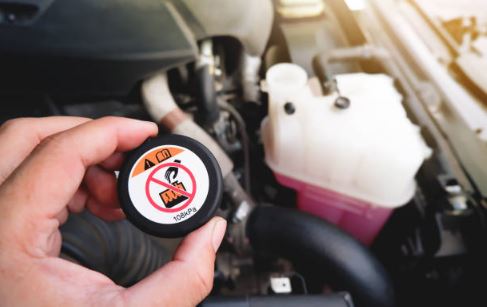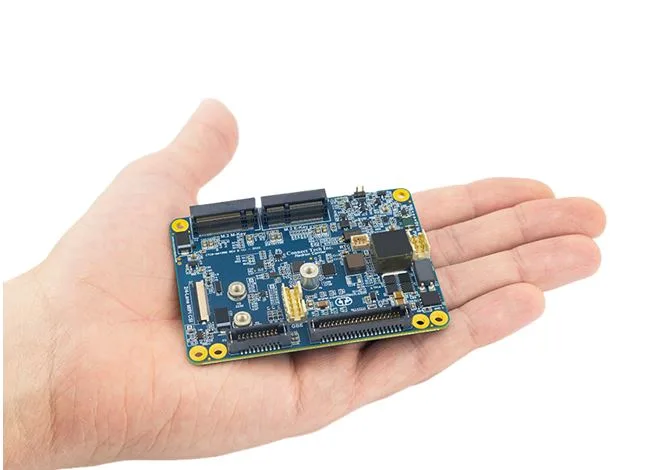How RPA Is Powering a New Era of Deduction Automation at iNymbus
In the last few years, automation has moved from being a buzzword to a practical tool reshaping how companies operate. Among all forms of automation, Robotic Process Automation (RPA) has emerged as one of the most powerful technologies for handling repetitive, rule-driven tasks with speed and accuracy.
While RPA has found applications across industries, some of the most impressive results are happening in retail supplier finance, especially in deduction management. And that’s where iNymbus has become a standout example of how RPA can transform a traditionally manual, time-consuming process into a streamlined, technology-driven system.
This article explores how iNymbus uses RPA, why it works so effectively for deductions, and how it’s helping finance teams reduce effort, speed up resolution, and gain clarity over their data.
For a deeper understanding of how RPA supports retailers and suppliers, you can explore this article on RPA in retail, it’s a great foundation for the concepts discussed here.
Why RPA Works So Well for Deduction Processing
Deduction management is one of the most detail-heavy and repetitive workflows in a supplier’s finance department. Every day, teams spend hours on tasks like:
- Logging into retailer portals for claim files
- Downloading backup documents
- Matching deductions with invoices, POs, and shipments
- Determining whether deductions are valid or invalid
- Preparing and submitting dispute packages
- Updating ERP systems
These tasks follow a predictable, rule-based pattern, making them a perfect fit for RPA.
Unlike traditional automation or custom integrations, RPA mimics human actions. Bots can log in, click, download, compare, validate, organize, and submit information just like an analyst, only faster, more consistently, and at any scale.
How iNymbus Uses RPA to Transform Deduction Workflows
What makes iNymbus unique is how deeply RPA is embedded in its deduction automation platform.
Instead of replacing existing systems or requiring major changes, iNymbus deploys RPA bots that step into the exact workflow a finance team is already using. But instead of a person manually performing each step, bots take over the repetitive tasks end-to-end.
1. Automatic Retrieval of Claim Files and Backup
Bots automatically download remittances, claim forms, PODs, invoices, and shipment documents from retailer portals.
2. Instant Data Matching
RPA matches deduction details against invoices, POs, and shipment data within minutes—reducing errors and speeding up decisions.
3. Classifying Valid vs. Invalid Deductions
Bots separate deductions that should be accepted from those that should be disputed, ensuring consistency and better visibility.
4. Automated Dispute Preparation
RPA assembles dispute packets with all required documents, templates, PDFs, evidence files, saving significant time.
5. Submitting Disputes Directly to Retailer Portals
Bots handle uploads, emails, or structured templates depending on retailer requirements.
6. Updating Internal Systems Automatically
Every update, status, timestamps, documentation, is posted back to internal systems with zero manual entry.
What RPA Solves for Finance Teams
Time Efficiency
Manual work reduces from hours to minutes, freeing teams to focus on strategic analysis.
Lower Operational Costs
As deduction volume increases, automation absorbs the workload, reducing the need to scale headcount.
Higher Accuracy & Better Recovery
Consistent rules, precise validation, and cleaner reconciliation lead to higher recovery of invalid deductions.
Why RPA Is Becoming a Standard in Retail Finance
As retail grows more complex, deduction volume continues to rise. Manual processing can’t keep up.
RPA offers scalability, consistency, and reliability, without needing major system changes.
iNymbus builds on this by applying RPA specifically to the deduction world, giving finance teams an automation solution that fits their unique challenges.
See How RPA Works in Real Deduction Workflows
If you’re curious to see how automation reshapes deduction workflows, you can take a quick look at how iNymbus runs RPA behind the scenes and explore whether it fits your process.
The session shows how bots gather documents, match data, classify claims, and submit disputes, all without manual effort.
Conclusion
RPA is no longer just an emerging technology, it has become a practical, proven solution for businesses dealing with complex, high-volume financial workflows. iNymbus demonstrates how powerful RPA can be when applied thoughtfully to deduction management.
By automating repetitive tasks, improving accuracy, and accelerating dispute resolution, RPA helps finance teams regain control, protect revenue, and operate with greater confidence.
As deduction volumes grow and retailers introduce new compliance rules, companies that embrace automation will be better positioned to stay efficient, competitive, and financially strong.
For finance and technology leaders looking to modernize their processes, iNymbus shows exactly how RPA can deliver real impact, quickly and at scale.





